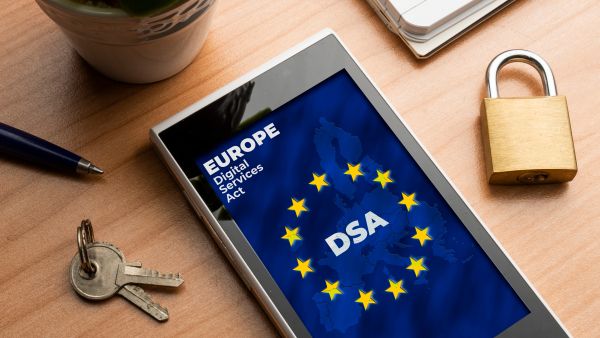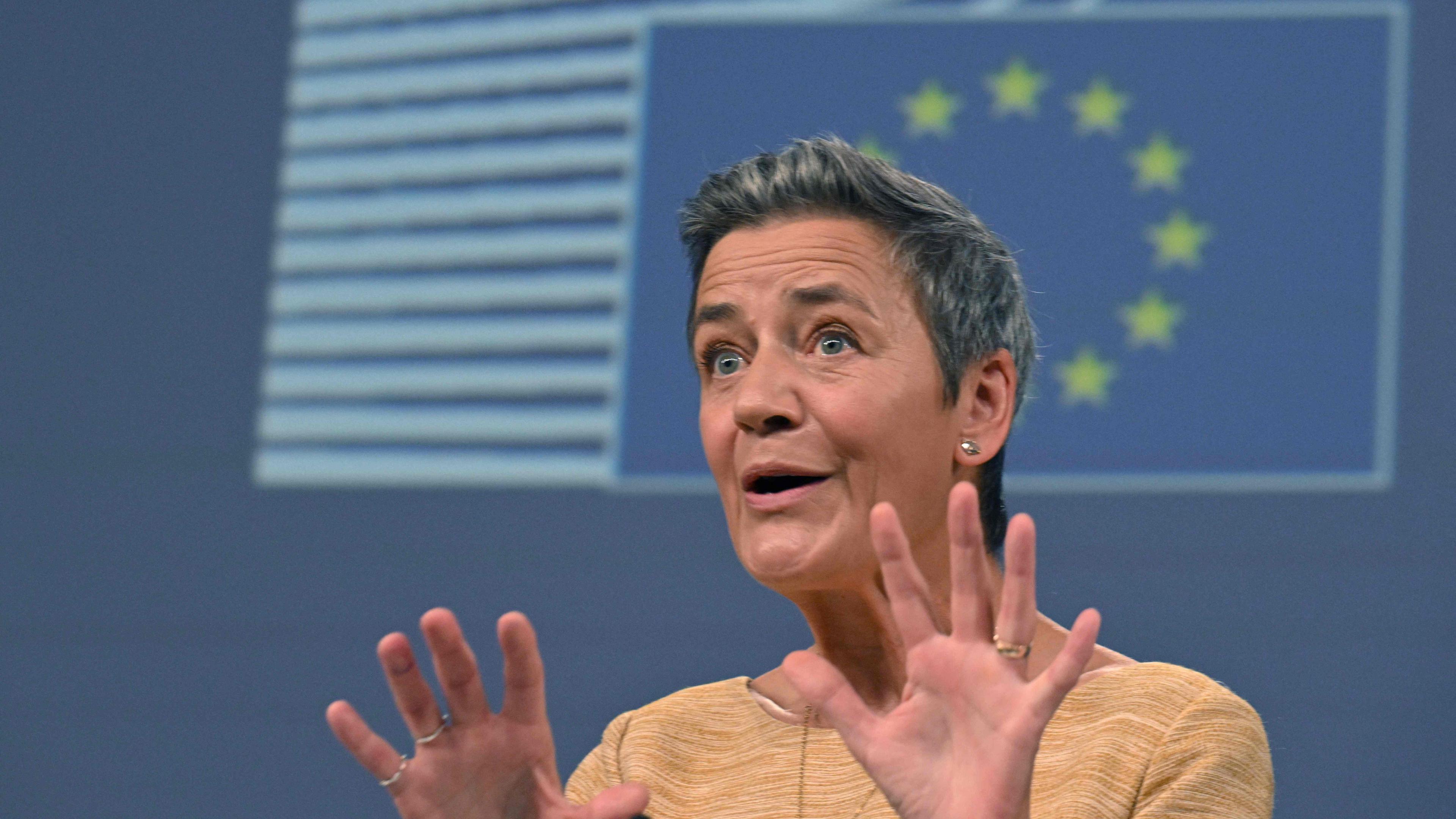In a significant move for tech giant Apple Inc. (AAPL.O), the European Union has issued a stern warning, directing the company to halt geo-blocking practices across various digital services, including the App Store, Apple Arcade, Music, iTunes Store, Books, and Podcasts. This directive arrives as part of the EU’s ongoing efforts to eliminate geographical restrictions in the digital economy, empowering consumers across Europe to access a wider range of content, irrespective of their location.
Here's ads banner inside a post

The European Commission, spearheaded by Commissioner Margrethe Vestager, announced the findings of an investigation that pointed to what it identified as “potentially prohibited geo-blocking practices” within Apple’s ecosystem. The Commission has stated that if Apple does not respond adequately, enforcement actions by national regulatory bodies across Europe could follow, a prospect that could bring substantial operational challenges and penalties for the California-based tech giant.

Here's ads banner inside a post
Understanding Geo-Blocking and Its Impact
Geo-blocking is a digital restriction that companies use to control access to their content based on a user’s geographical location. By determining a user’s IP address, companies like Apple can identify where the user is accessing the internet from and, in turn, restrict content that is only available in certain regions. These practices have historically helped companies adhere to licensing agreements or manage regional market strategies. However, from a consumer’s perspective, geo-blocking can be highly restrictive and limit access to content.
For Apple, geo-blocking is applied across its media services, effectively creating varied user experiences depending on the country of access. For example, some applications, music albums, or books might be available in one country and restricted in another, leading to frustrations among users and an uneven digital landscape.

Here's ads banner inside a post
This restriction not only limits consumer choice but also clashes with the EU’s ambition to establish a Digital Single Market (DSM)—an environment where digital barriers are minimized, and people within EU member states can enjoy the same access to digital services and products. The DSM initiative aims to streamline online access, facilitate cross-border e-commerce, and encourage companies to operate uniformly across the EU. Consequently, the EU regards geo-blocking as an outdated, counterproductive practice that undercuts the spirit of a unified European market.

The EU’s Position: Vestager’s Stance Against Discriminatory Practices
European Commissioner Margrethe Vestager, known for her hardline approach to big tech companies, has been a vocal advocate for consumer rights and digital fairness. Addressing Apple’s geo-blocking practices, Vestager stated, “We are stepping up the fight against geo-blocking. No company, big or small, should unjustly discriminate customers based on their nationality, place of residence, or place of establishment.” This strong stance emphasizes the EU’s commitment to dismantling barriers and ensuring that European consumers receive equitable treatment across all regions.

Vestager’s involvement further underscores the Commission’s determination to maintain a level playing field for consumers, especially when it comes to powerful companies like Apple. Her actions reflect an ongoing shift in the EU’s regulatory landscape, where consumer rights, digital inclusivity, and corporate accountability are becoming central pillars in policy-making.
One Month to Comply: Apple’s Options and Potential Repercussions
The European Commission has given Apple one month to propose a concrete plan to address the identified geo-blocking practices. This limited timeframe indicates the urgency with which the EU views this matter and places Apple in a challenging position. Within this period, Apple must formulate commitments to rectify these practices or risk facing regulatory actions from various EU member states.
Failing to comply could expose Apple to several potential repercussions, including:
- Fines and Financial Penalties: If deemed non-compliant, Apple could face substantial fines from the European Commission. Under EU competition laws, penalties can reach up to 10% of a company’s annual revenue, which, for Apple, could translate into billions of dollars.

- Operational Constraints: Beyond financial penalties, Apple could be subject to operational restrictions or forced adjustments to its services within the EU, potentially impacting its user base and profitability in the region.
- Reputational Risks: The issue of geo-blocking has increasingly resonated with digital users who desire open and accessible digital content. Continued resistance from Apple could spark consumer backlash and damage its brand image, which prides itself on customer-centered design and accessibility.
Apple’s Previous Regulatory Challenges in the EU
This is not Apple’s first encounter with the European Union over regulatory issues. In recent years, the company has navigated a series of legal and policy disputes with the EU:
- Digital Market Act (DMA): Apple, along with other tech giants, has faced scrutiny under the EU’s Digital Market Act, which regulates companies deemed to be “gatekeepers” in the digital economy. Apple’s control over the App Store, for instance, has drawn criticism and regulatory action under this framework.

- Tax Controversies: Apple’s tax arrangements in Ireland led to a landmark case with the EU in 2016, in which the Commission ordered Apple to repay approximately €13 billion in unpaid taxes. Although Apple later won an appeal against the decision, the case highlighted the EU’s commitment to holding multinational corporations accountable for tax practices.

- Privacy and Data Protection: The EU’s General Data Protection Regulation (GDPR) imposes stringent requirements on data privacy, a matter that has seen Apple position itself as a privacy-centric brand. However, with increasing regulatory attention on the use of customer data, Apple’s practices will likely remain under scrutiny.
Potential Shifts in Apple’s Strategy and the Future of Digital Rights
If Apple agrees to the EU’s demands, it could signal a major shift in how the company approaches regional policies and content distribution. For consumers, this could mean expanded access to digital content, services, and applications previously restricted by geo-blocking. Moreover, compliance could set a precedent for other tech giants operating in the EU, sending a clear message about the unacceptability of geo-blocking practices in the region.
However, some challenges remain. Apple has historically maintained tight control over its ecosystem, with region-specific content being part of its strategy to localize products and adhere to different licensing agreements. Eliminating geo-blocking might require Apple to renegotiate licensing deals with content providers, particularly in the music, film, and book sectors, potentially leading to increased operational costs.
Broader Implications for the Global Tech Landscape
The EU’s directive to Apple could have far-reaching implications for the global tech landscape. Should Apple choose to comply, it could influence other companies with similar geo-blocking policies to reevaluate their own practices. Large players like Netflix, Spotify, and Amazon Prime Video could face similar regulatory pressures, prompting a gradual dismantling of geo-blocking in favor of a more open, accessible digital environment.
The EU’s push against geo-blocking also aligns with a broader trend toward increased regulation in the tech industry worldwide. Countries such as Canada, Australia, and Japan are actively considering measures to reduce digital barriers and ensure consumer-friendly practices. The EU’s actions could thus catalyze a global movement, where regulatory bodies become more assertive in challenging restrictive digital practices.
Conclusion: A Milestone in Digital Fairness
The EU’s ultimatum to Apple represents a pivotal moment in the ongoing dialogue between regulatory bodies and technology companies. If Apple decides to adhere to the EU’s demands, it could mark a victory for consumer rights advocates who have long argued for more open access to digital content. Conversely, Apple’s response may shape future regulatory approaches to geo-blocking worldwide, influencing how companies balance profit motives with consumer demands for unrestricted digital access.

As Apple considers its options, the outcome of this dispute could not only redefine its relationship with European regulators but also set a new standard for digital fairness in an increasingly interconnected world. This could ultimately benefit millions of users across Europe who seek a unified digital experience and reinforce the EU’s role as a leader in consumer rights within the tech industry.

